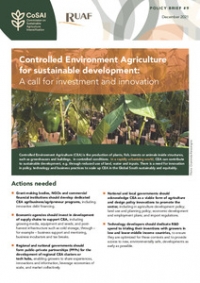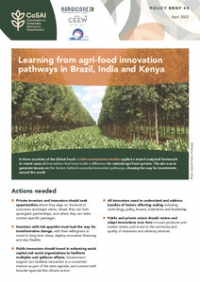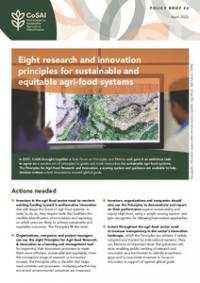Water accounting is the process of communicating information on water resources and the services water provides, such as irrigation for agriculture, in a river basin or a country. Inspired by financial accounting, water accounting tracks sets of indicators and presents data in a number of standard reporting sheets designed for individual purposes. One of its greatest benefits is introducing standardized terminologies that can be unequivocally understood by policy makers, lawyers, hydrologists, economists, environmentalists, agronomists and others.

One WLE research project, ‘Accounting for Nile waters: Connecting investments in large-scale irrigation to gendered reallocations of water and labor in the Eastern Nile basin,’ is setting out to explore how water accounting could guide decisions on water reallocation. The project intends to help solve problems that might result from recent ambitious investments in irrigated agriculture and new irrigation systems in the region.
The project was launched at an inception workshop, which was held on 9–11 March, 2015, in Wad Medani, Sudan. The experts assembled reflected on the issues and opportunities related to promoting water accounting, ecosystems services and gender analysis, aiming to contribute to sustainable natural resource management and improved livelihoods of rural populations. The launch was organized by the Hydraulic Research Center, the institution leading the project.
While a lot of research on improving access to water, including water accounting, already exists, the workshop participants explored whether, and to which extent, such efforts have contributed to establishing sustainable ecosystem services and gender equity.
Professor Margreet Zwarteveen, of the UNESCO-IHE Institute for Water Education and project lead, said, “The overall ambition of the project is to make water accounting contextually relevant by including social, gender and ecological dimensions. We have to visualize the strong complementarity between these dimensions and the types of values associated with the WLE program.”
Presentations were made on WLE’s global and regional programming, water accountability and the project’s three case studies (from Ethiopia, Egypt and Sudan). Interactive sessions on the conceptualization of water accounting, its purpose and impact were held, and the meeting recognized the use of water accounting for improving irrigation systems through integrating hydrological processes with land use and water flows, a methodology that has been developed by UNESCO-IHE, the Food and Agriculture Organization of the United Nations (FAO) and the International Water Management Institute (IWMI).
Water use in the eastern Nile basin has grown by many folds due to different factors. However, problems of water accessibility remain unresolved. Water problems can be diagnosed in different ways, including by assessing the overall health of an ecosystem. While improving access to water for all is a mandate of institutions in the water sector, such efforts require information and buy-in from many disciplines.
Water accounting provides relevant and unequivocally understood data about water uses and value, which is central for effective communication with decision makers and other stakeholders. If WLE can demonstrate how water accounting provides information that eases decision making, equitable and transparent water governance for all water users and a sustainable water balance at scale might be possible.
Putting the water accounting methodology into use requires a good understanding of decision-making processes, which would enable WLE researchers to present the research outputs and demonstrate the value of water accounting at the right place and at the right time. If done successfully, this approach could be an excellent vehicle for securing stakeholders’ buy-in, said professor Zwarteveen.
The workshop concluded with the formulation of an action plan, and it identified water accounting as a methodology with potential to promote better management of natural resources for ecosystem services and social equity. Participants agreed to collaborate with local and international partners, NGOs and civil societies throughout the project implementation.
This project is part of the WLE Nile and East Africa region program. The CGIAR Research Program on Water, Land and Ecosystems Focal Region Program in the Nile and East Africa Region (WLE Nile-East Africa) is a research-for-development initiative that seeks to restore and bolster opportunities for increased agricultural productivity through key ecosystem services, especially in the resource poor areas of the region.












